Tales from the Borderlands is Telltale's triumphant return to its comedic roots
Even if it follows The Walking Dead's template.
Having not played much Borderlands and only having cursory knowledge of the series, I approached Tales From the Borderlands at this E3 with a bit of apprehension. Sure, it would offer fan service to veterans of Gearbox's open-world shooting series, but two games and a smattering of DLC hardly seems like the sort of inviting, expansive universe of Robert Kirkman's The Walking Dead or Bill Willingham's Fables series.
When Telltale's Job Stauffer calls Borderlands "as big, if not bigger than and richer than something on the level of Star Wars," it's difficult not to raise an eyebrow at such an ambitious claim. Having only seen a fleeting glimpse of Tales From the Borderlands with its opening half hour, I'm not sure how well-realised the Borderlands universe is in relation to George Lucas' fantasy series, but based on my initial impressions it could be even better. This is Star Wars without the dry politicking surrounding trade tariffs, the solemn samurai oaths of the Jedi, or the Shakespearean familial tragedy underlying the space western saga. Instead, this is Star Wars: The Good Parts: the Mos Eisley Cantina, the kinetic battles with Jabba the Hutt's minions, the spiky banter between Han and Leia. I know, right?
But Tales From the Borderlands isn't just a fresh spin on space opera, it's also a fresh take on Telltale's formula too. The basic format is similar to what Telltale's been doing with The Walking Dead and The Wolf Among Us in that it's light on action and puzzles, but heavy on narrative and dialogue choices. The difference is that in Dead and Wolf you played as a relatively blank slate whose personality you were able to shape to a considerable degree so they'd operate as an extension of yourself. In Tales From the Borderlands, you play as something of an asshole Nathan Drake.
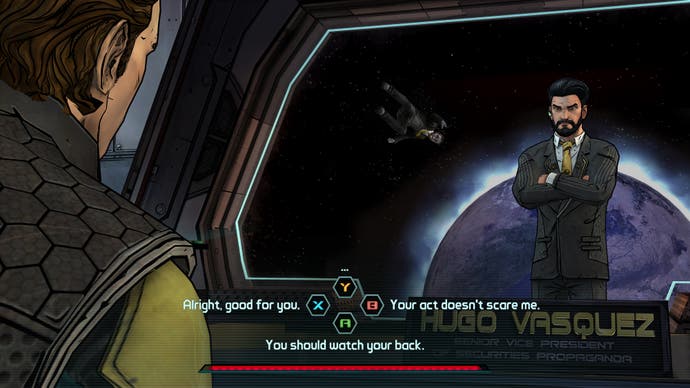
At least you do half the time. For Tales From the Borderlands follows a Rashomon-esque structure wherein you toggle between two characters: Rhys the grifter, and Fiona, the other grifter. Both are summoned by a mysterious masked fellow in an effort to reclaim a vault key - essentially a macguffin that will bestow you with an unprecedented amount of power. The problem is Rhys and Fiona absolutely despise each other. Why, you ask? Well, that's all part of the mystery, and each character tells a different version of events with the truth lying somewhere in the middle.
Let's get back to Rhys as the hands-off demo I see revolves around him. Set after Borderlands 2, Tales begins with massive mineral conglomerate Hyperion Corporation in need of a new boss after its tycoon Handsome Jack has been defeated. Rhys is just a "company man" who was after Jack's throne when his co-worker Hugo Vasquez, a "big corporate jerkface" with a haircut and ego that screams douchebag, promotes himself to CEO. Rhys overhears Vasquez's phone call about illegally obtaining a vault key, so it's up to you to intercept the contraband in order to piss off your boss and use the vault's power to become basically the new Donald Trump. That's your goal. Protecting Clementine, this ain't.
But it's fun to be the bad guy! Or at least a petty scoundrel with illusions of grandeur. This shift in perspective comes with a shift in playstyle, too. When you land on the bandit wasteland of Pandora with your pals Vaughn and Yvette, you need to ask a greasy-faced redneck for directions. Rhys callously calls the man "grease face" to his (greasy) face, which naturally leads to trouble.
"Look, fella. My friend is really, really sorry," says Vaughn. "He's got some kind of a condition where he says really stupid crap just to see what will happen." That's how half the audience plays these games anyway, so having a character that's a bit of a dick gives the player carte blanche to explore this more exuberant side of their personality.
When Rhys examines a sleeping or unconscious man's belongings and finds credits, there's no decision whether to loot the stranger or not. Of course you take it! This is Borderlands, after all: a galaxy run by greed.
Beyond its shift in perspective, Tales From the Borderlands integrates its art assets more gracefully than its adaptations of Kirkman and Willngham's work. This is because Gearbox made a lot of the assets in this collaboration and Telltale subtly alters its directorial touch to reflect this. One of my favourite sections involves a scrape with some local thugs where Rhys and company have to send in an attack bot. Here you see a weapon loadout screen that looks at home in Gearbox's shooter and you manually select what armaments you want for your mech. The scene ends up playing with your input mostly relegated to QTEs, but placing your own stamp on how the action choreography in the background transpires is a nice touch that goes a long way towards personalizing the adventure.
If you're worried that Rhys' antics may be too prescribed, don't be. Telltale still has plenty of wonderfully difficult interpersonal decisions laid out before you. The demo culminates in a back-alley deal gone wrong when your contact's suspicion is raised since you're not Vasquez. Things get even dicier when the dealer's girlfriend "has a bad feeling" about you. Do you tell the man to not listen to his significant other, play the calm and understanding type in hopes of reclaiming the couple's trust, or try to take the vault key by force? It ain't easy being a swindler.
While Tales From the Borderlands may seem like a departure for Telltale, it is in many ways a return to form. People have nearly forgotten that before The Walking Dead Telltale used to be primarily a comedy studio with its most well-known properties being modern takes on Monkey Island, Sam & Max, and Homestar Runner. It's a bit like Sam Raimi going straight from his goofy Evil Dead flicks to more serious fare like A Simple Plan and the Spider-Man trilogy only to return to his roots with the kooky horror comedy Drag Me to Hell. This isn't a knock against The Walking Dead and The Wolf Among Us (the former of which I loved), but rather a statement that this seemingly corporate crossover feels more like an honest-to-goodness passion project for Telltale while it catches its breath between the grim tragedies of The Walking Dead, Fables, and its upcoming Game of Thrones adaptation. It may not be for everyone (and indeed action junkies would best stick with Borderlands' upcoming Pre-Sequel), but this is for Telltale fans - whether they've played Borderlands or not.
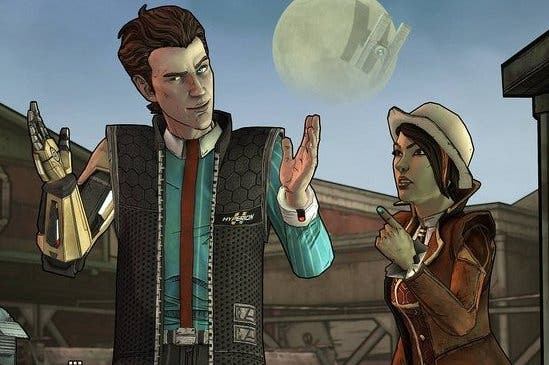


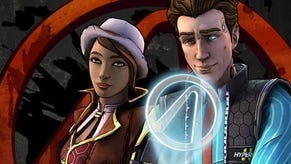
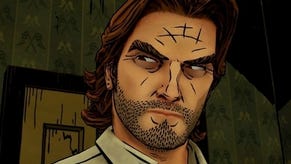

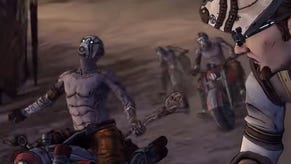

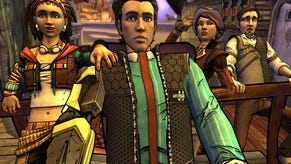
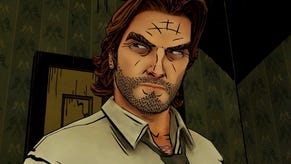





.png?width=291&height=164&fit=crop&quality=80&format=jpg&auto=webp)


